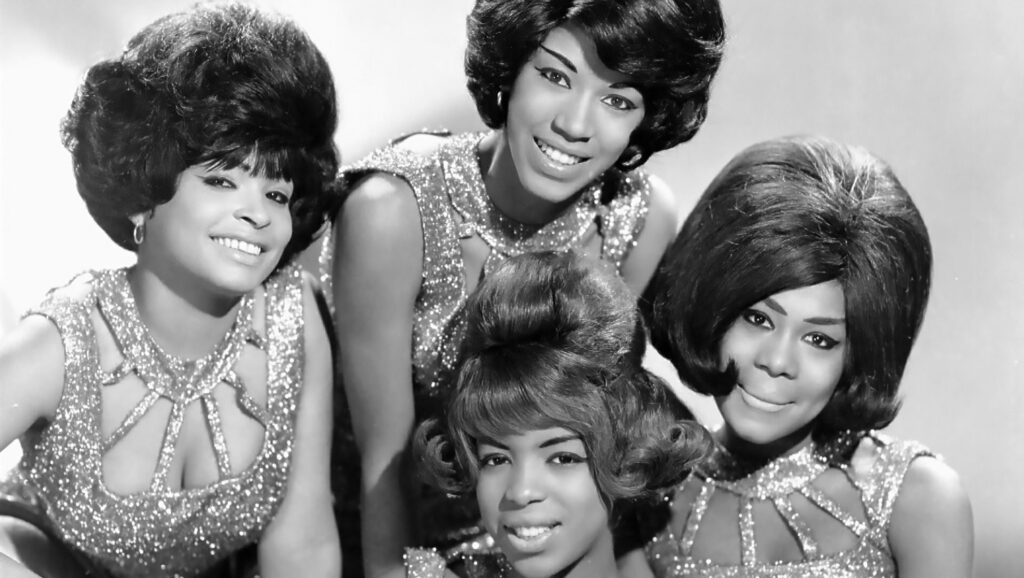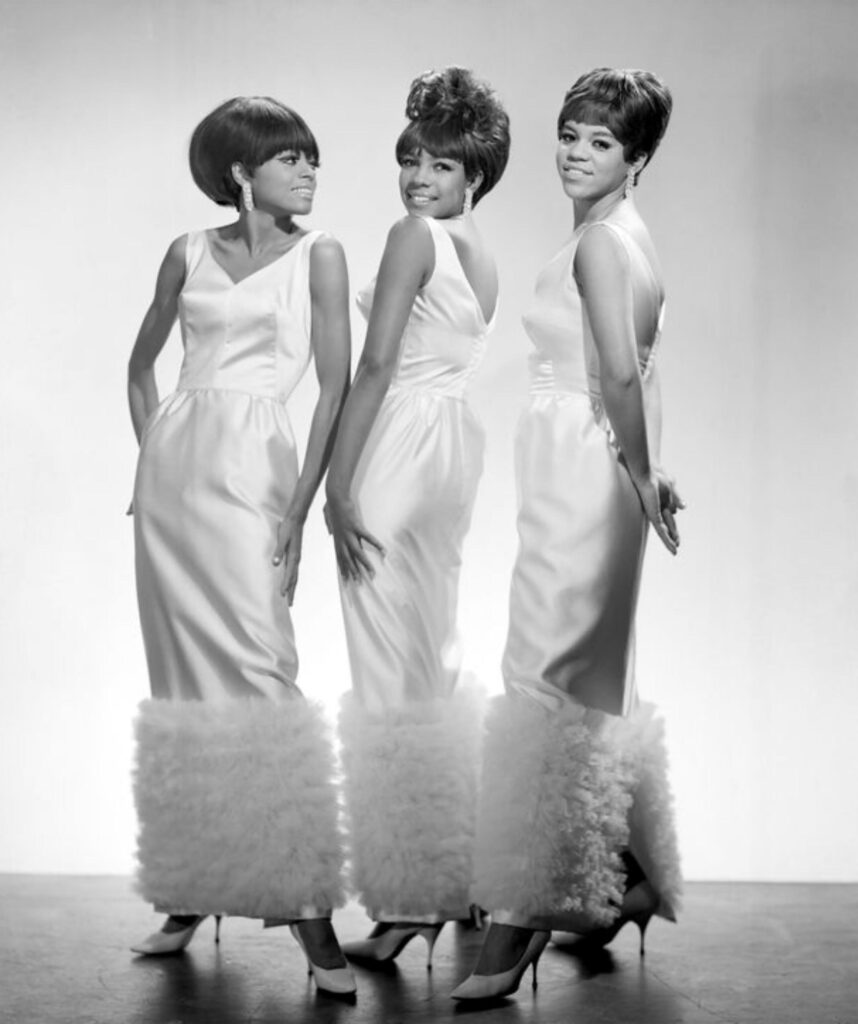Above: Emily Sieu Liebowitz (photo by Joshua Simpson)
In the 1961 song “Please Mr. Postman,” the Marvelettes sang: “So many days, you’ve passed me by/You saw the tears standing in my eye/You wouldn’t stop to make me feel better/By leaving me a card or a letter.”
Now, many years later, Emily Sieu Liebowitz (Rachel Carson ’07, literature) has done what the fictional postal worker of that famous song wouldn’t. With coauthor Laura Flam, she’s delivered a love letter to the American girl groups of the 1960s—a narrative oral history called But Will You Love Me Tomorrow?, which features more than 100 interviews about the people, songs, civil rights movement, music industry, and more.

The Marvelettes in about 1964 (photo courtesy Pictorial Press Ltd, Alamy Stock Photo)
Many of us have heard these songs our whole lives but don’t know much—if anything—about the voices behind them. But Liebowitz is quick to point out that these talented women have been busy living full, interesting lives since their early bursts of fame, not waiting around for much-deserved recognition.
“Although their time singing in girl groups seems like a highlight to us, it’s only one highlight to them,” Liebowitz said. “That’s what really struck me during the interviews for the book: what a full life can mean, and how that shifts and changes. It was a really big honor to get to speak to so many elders and get that kind of perspective.”
Liebowitz grew up listening to oldies on KFRC-FM in Hayward, where her Vietnamese mother and paternal grandmother worked together to raise her and her brother after their father died. Her mother fostered a love of literature by reading poetry and D’Aulaires’ Book of Greek Myths to her children.
At UCSC, Liebowitz’s love of literature and poetry blossomed in her creative writing classes. She said UCSC and her professors, particularly lecturer David Lau, taught her to take her work, poetry, intellect, and interests seriously and see where they could take her.
She applied all she learned to life after graduation, which included moving to New York, earning an M.F.A. (poetry concentration) from the University of Iowa, studying French at the Sorbonne, working in communications for the Brooklyn Museum and Academy of American Poets, and writing three books.
In New York, Liebowitz and Flam attended concerts structured like 1960s music shows, with 10 acts including the Shirelles and the Chiffons singing their five biggest hits. Liebowitz wanted to learn more about the girl groups, but couldn’t find out much.
“What was there was really buried underneath a lot of stories about men who’d become famous, like producers Phil Spector and Berry Gordy,” she said.
Liebowitz and Flam reached out to over 100 girl group singers and found that many were excited to share their stories.

The Supremes in about 1965. Left to right: Diana Ross, Mary Wilson, and Florence Ballard (photo courtesy Pictorial Press Ltd, Alamy Stock Photo)
The youngest girl group singers were only 11 when they started touring in the 1960s, and large concert promoters would take them to regions in the South where their lives were in danger. Girl group contributions to the civil rights movement have been largely erased from history, but the singers played an important part by desegregating pop culture and integrating music show audiences for the first time. That didn’t spare them from experiencing segregation firsthand, though, and they would regularly show up to perform and be turned away because the concert organizer hadn’t realized they were Black. The Crystals, whose members were all Black, once slept in a venue lobby because local hotels would not accept them and they had nowhere else to go until morning.
Liebowitz hopes But Will You Love Me Tomorrow? will deliver some long-overdue recognition to the singers and artists who gave us so much.
These groups and songs always seem to be present in times of precipitous change, said Liebowitz.
“And in those ways they’re there for us, returning for us in these great, grand moments of becoming,” she said. “That’s why the lack of recognition for them is such an egregious erasure.”

